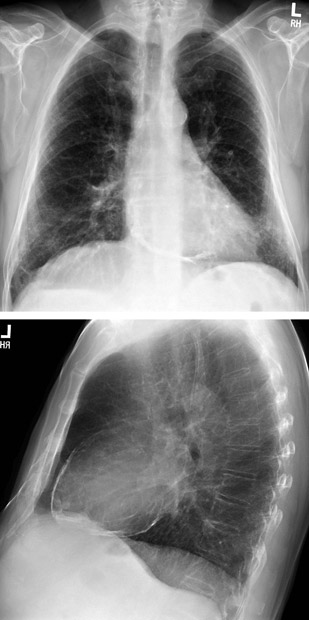Latest updates on ACP's priorities, initiatives
ACP Spotlight offers readers a look at ACP's current top priorities and initiatives, as well as highlights from our e-newsletter, ACP Internist Weekly.
ACP calls for comprehensive reform of U.S. health care
ACP has issued a bold call to action challenging the U.S. to implement systematic reform of the health care system, releasing an ambitious new vision for a better health care system for all and expansive policy recommendations for how to achieve it.
“Better Is Possible: The American College of Physicians' Vision for the U.S. Health Care System” is a comprehensive, interconnected set of policies to guide the way to a better U.S. health care system for all. It includes a call to action that challenges the U.S. not to settle for the status quo but to implement systematic health care reforms. The additional set of ACP policy papers addresses issues related to coverage and cost of care, health care payment and delivery systems, and barriers to care and social determinants of health, and offers specific recommendations supported by evidence about ways the U.S. can change the status quo and achieve a better health care system for all.

“As internal medicine physicians, we face challenges every day in working through the current system on behalf of patients. We can and must imagine what a better health care system looks like, and be committed to attaining it. ACP, through this vision, is willing to accept that challenge, and calls on others to join us,” said Robert M. McLean, MD, MACP, ACP's President.
The series of policy papers was published Jan. 21 as a supplement to Annals of Internal Medicine.
Updated Vision, Goals, and Core Values reflect importance of diversity, equity, inclusion
ACP's Board of Regents recently approved revisions to ACP's Vision, Goals, and Core Values to better reflect that diversity, equity, and inclusion are essential and valued pillars of the organization. The Vision, Goals, and Core Values are consistent with revisions to ACP's diversity, equity, and inclusion policy, which outlines ACP's belief that a commitment to diversity, equity, and inclusion strengthens the organization's capacity to respond to the needs of its members, patients, the profession, and the public. While ACP's Mission “to enhance the quality and effectiveness of health care” remains unchanged, the updated Vision and Goals now ensure that ACP's approach to inclusiveness is clearly communicated and is understood to be foundational for the College. In addition, the updated Core Values emphasize that ACP's actions will reflect its embrace of diversity and inclusion to foster engagement, belonging, and respect, resulting in facilitation of a just and equitable culture.
ACP releases Spanish-language edition of MKSAP 18
ACP has released a Spanish-language version of the 18th edition of the Medical Knowledge Self-Assessment Program (MKSAP 18). Spanish-language online versions of the Cardiovascular Medicine, Dermatology, Gastroenterology and Hepatology, Hematology and Oncology, and Neurology sections are now available. The remaining six sections (Endocrinology and Metabolism, General Internal Medicine, Infectious Disease, Nephrology, Pulmonary and Critical Care Medicine, and Rheumatology) will launch in 2020. The online version will include twice-yearly content updates to reflect practice-changing information. Spanish-language versions of MKSAP 18 Print will also be available. The Spanish-language version of MKSAP 18 is available through Grupo Océano.
ICYMI: Highlights from ACP Internist Weekly
- ACP issues guideline on testosterone treatment for age-related low testosterone levels. Among other recommendations, ACP said physicians should prescribe testosterone for this condition only in men experiencing sexual dysfunction and should discontinue treatment if sexual function does not improve. ACP's guideline, which was based on an evidence review, is endorsed by the American Academy of Family Physicians and applies to adult men with age-related low testosterone levels. The guideline and evidence review were published Jan. 7 by Annals of Internal Medicine and were summarized in the Jan. 7 ACP Internist Weekly.
- Dense breast notification laws not associated with increased understanding among patients. A nationally representative online survey found that while women living in states with notification laws were more likely to report breast density than those in other states, no difference was seen in knowledge about the relationship between density and breast cancer risk. The study was published Jan. 8 by the Journal of General Internal Medicine and was summarized in the Jan. 14 ACP Internist Weekly.
ACP Internist Weekly is an e-newsletter published on Tuesdays and available online.Subscribe online.




